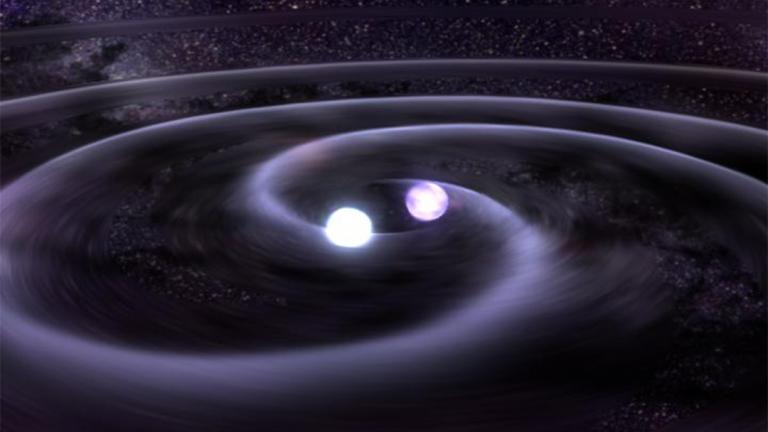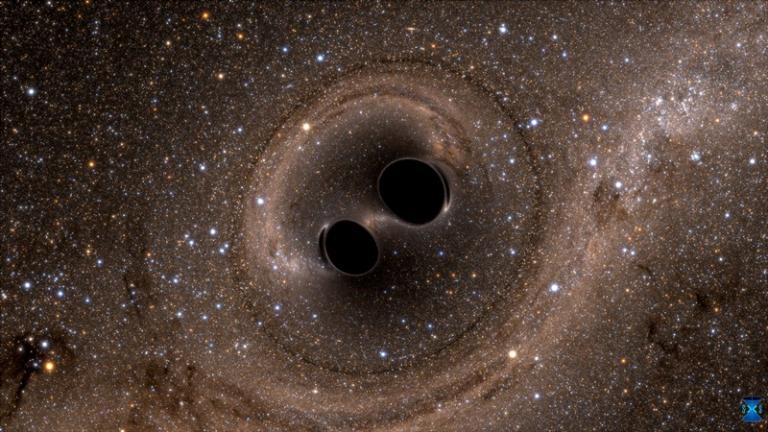About a hundred years ago Albert Einstein predicted the existence of something called “gravitational waves.” But he doubted they could ever actually be detected.
On Tuesday, the Nobel Prize in Physics went to three scientists who detected them.
The three founded the Laser Interferometer Gravitational-Wave Observatory, or LIGO, which first detected the waves in 2015. It has literally opened up a new way for scientists to look at the universe. They say it may one day enable us to look back to the very moment of creation itself, the Big Bang.
Daniel Holz is an associate professor at the University of Chicago where he is studying astronomical phenomena including black holes, supernovae and dark matter. He worked on the LIGO project and joins us in discussion.
Related stories:
 Detection of Gravitational Waves Stuns, Excites Scientific Community
Detection of Gravitational Waves Stuns, Excites Scientific Community
Feb. 15, 2016: The detection of gravitational waves first predicted by Albert Einstein is being hailed as one of the most important discoveries of the modern age. Some local scientists who worked on this groundbreaking achievement are here to explain.




